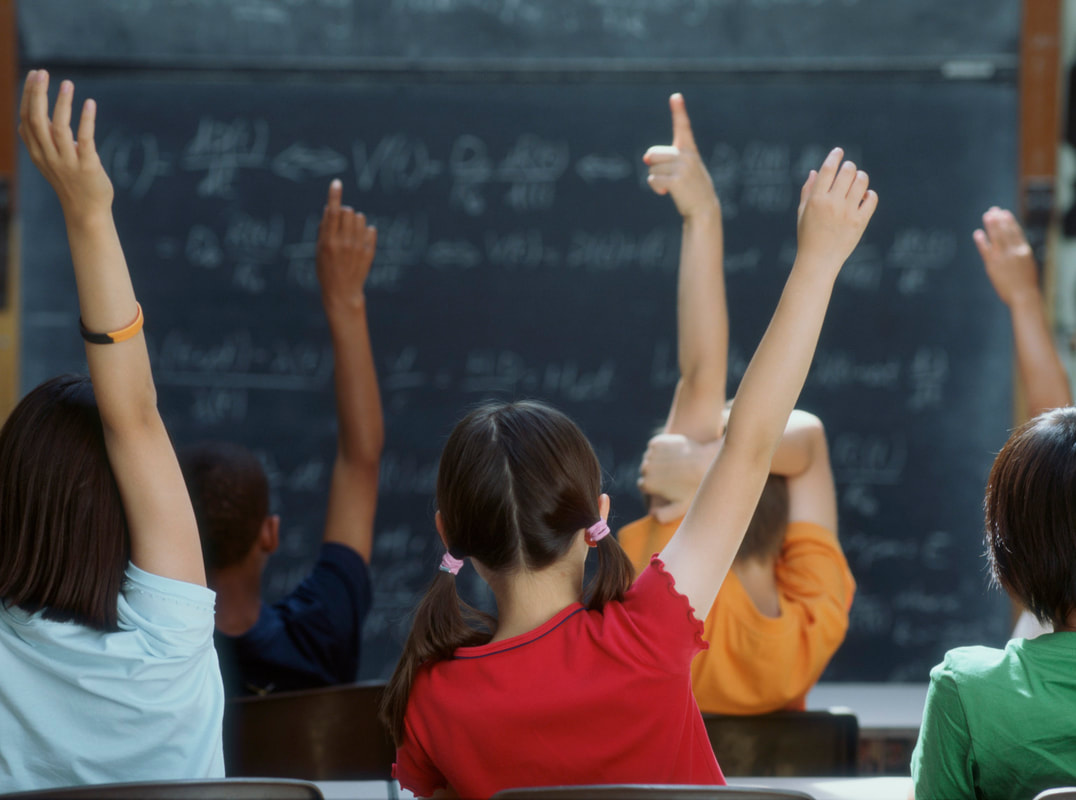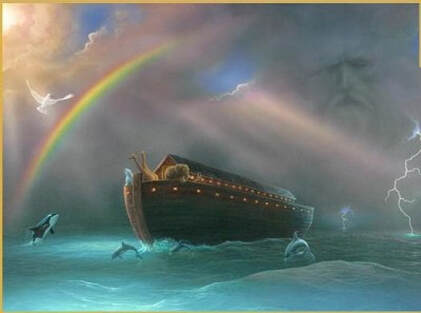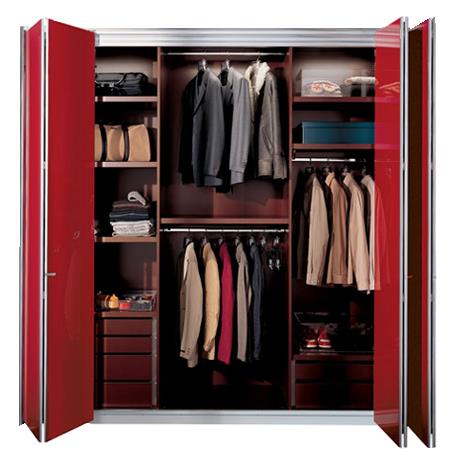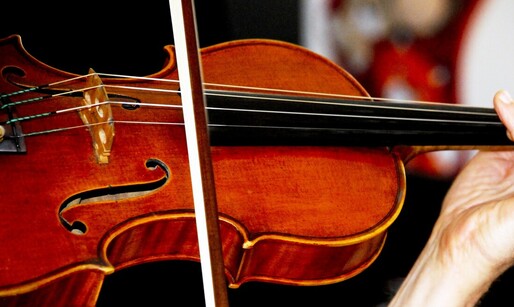all of the selves we Have ever been
 Outside my window the streetlamp flickers. In rapid-fire succession, it turns on and off, on and off, on and off, unable to commit in a David-and-Goliath match-up with the sun. Though subdued, the waning sun mocks the timid streetlamp daring it to take a stand. The sun has a hard time letting go on a summer’s evening, and so do I. As that giant spotlight dims and the soft aisle lights come on, I linger in the empty theater of the day, the music still playing in my ears. If I dawdle, will there be an encore? As I embrace the peace and the quiet, my mind slowly releases the echoes of the day. For that brief time just before total darkness, I live in the fairy tale world of twilight, a world that gives birth to imagination and sets the stage for dreams. What I most love about a late summer evening is the way it melts into a puddle of sleepy darkness for small, sweaty children exhausted from outdoor play, children who, like the sun, are unable to give up on the day, unwilling to go to bed. Each evening in my twilight zone, I remember the bath times and the bubbles that washed away the sooty remnants of the day and the stretchy, footed pajamas that became the uniform of the night. I relive the hours spent in an old wooden chair, its hypnotic rocking motion closing resistant but tired eyes. I see the tiny mouths quivering, each gentle breath a kiss blown to the departing day. And the scent! Oh, that exquisite, unforgettable scent of a sleeping child! Surely, it is a perfume called Enchantment. In my quiet, empty theater of today, I wonder: where did all of those yesterdays go? They were spent so quickly. Now, in the twilight of my life, those yesterdays return to me in the twilight of the day. Surely, twilight is nature’s master class on letting go. Outside my window the fireflies rejoice as they come out to dance upon the late evening air. The emerging stars wink back. And without a fight, they put the sun to bed.
2 Comments
 Then there is this other life, layered on top and woven through, the life of passion and pursuit, of my dreams and aspirations, a life of love sought and realized, of beauty and community, of adventure and openness. It is a life I always want and don’t always have…a life animated in thought and action by the hope that I shall flourish along with my friends and family—that we shall hold each up through our excellence, creativity, and goodwill, a life where we flourish together. Where humanity flourishes. The thought of this life fills my heart with love and hope, fills my lungs with breath. --Nick Riggle in This Life, This Body, This Day, This Time, These People, This Beauty: A Philosophy of Being Alive I have a neighbor who is about five years older than me. Like pre-menopausal women whose menstrual cycles align through association, my neighbor and I seem to run into each other on the way to the dumpster. I don’t know if it is some biological synchronization or just the timely flow of fertile debris before it grows into something alive inside our apartments, but it happens regularly. When we meet at the dumpster, we stand down wind of the odor of decaying food and poopy diapers. The conversation becomes a purge of trash, problems at work, and the decline of the neighborhood. The conversation winds down when one of us makes a half-hearted commitment to do lunch “sometime,” the signal that one of us is cold, hot, or has to go. While I enjoy this wonderful neighbor whenever and wherever I meet her, I am beginning to feel some pressure to dress for these trash-can occasions. My petite, fashionable neighbor always comes to the dumpster like it is cocktail hour in an upscale Greenwich Village bar. She sparkles like champagne with her hair styled, nails polished, eye makeup just right. I am both in awe and suspicious. I do notice that she seems to have considerably more trash to dispose of than I do. Perhaps, as I suspected, being beautiful requires a lot of time-consuming work and a lot of products. I rationalize my own appearance with claims of sparing the environment from all that packaging. What else I notice about my neighbor, in addition to her lovely appearance and volume of trash, is the way men respond to her, to all petite women, really. A petite woman can carry a baggy to the dumpster, and a manly neighbor will fall all over himself offering to carry her trash. Petite women are sexy, sleek little sailboats. I, on the other hand, am an overloaded cargo ship that has been stuck in the Suez Canal for so long that the bottom has rusted out. When a man approaches me, it is not to offer aid or flirtation. It is usually to ask if I will hold up the front end of his car while he changes a tire. For women of my generation and the ones before, it seems like it was always a choice between being capable or beautiful. Smart girls were admonished to keep their hands down and NEVER appear smarter than the boys. To do otherwise would guarantee spinsterhood. Of course, all young children were advised to “be seen and not heard,” but there was a time-limit on that for boys. For young women the advice later became “be seen but not heard.” Be desirable but not too smart. The images of women who appeared in ads or on television were housewives dressed in fitted-waist dresses, wearing nylon stockings, pumps, and a string of pearls. A starched white apron was the only evidence of their shared occupation. These women, if mothers, deferred all parenting decisions until the father got home. Here I am now old enough to have one foot in the grave (and I can still hold up the front end of a car, thank you very much!) and I continue to confront these messages from my past, the trash talk that shaped my life and opportunities. I look around now at young women professionals and think “Hey, that’s what I wanted!” I just didn’t know it was available to me or even that it was out there to want. Such models or examples were not present in my every-day environment. The real professionals that I knew were nuns. They taught in schools and colleges and operated hospitals. For me, that was the spinsterhood I feared. Of course, messages about beauty and appearance still taunt women today, but the messages about brains and opportunity are not as limiting. There are plenty of women who now can claim brains and beauty. They can be mothers and successful professionals. But there are groups of individuals who continue to receive limiting messages about who they are and what they can be. To all children everywhere, I say this: No matter what package you are wrapped in, it is good to raise your hands. Take a chance no matter what you are wearing or what nouns or pronouns describe you. Be at home in your body and in your life. Beauty is in the eye of the beholder. Behold your own beauty. And if anyone tells you otherwise, well, that’s just trash talk.  “…it is not a slight thing when they, who are so fresh from God, love us." Charles Dickens More of my friends have granddogs than grandchildren. I rarely even see children any more. I drive through neighborhood after neighborhood, not a child anywhere. On my regular walks, there are no bicycles lined up at the park, no giggles floating through the air, no petty arguments with shouts of “I’m telling” when childish negotiations falter. The researcher and writer Jean Twenge observes that a generation is defined not by historical events, though these shape experiences and attitudes, rather it is changes in technology that characterize each generation. And as technology has progressed, we have become more individualistic, less communal. We just don’t need each other as much for the hard labor of life-sustaining activities. With less wear and tear on our bodies, we are living longer. With longer life comes extended youth and later maturity. But as wannabe grandparents are here to remind, the biological clock is still an ancient wind-up toy. It ticks for only so long, and then it winds down. Stops. Makes us too late for the party. COVID did not help the grandparent cause. The COVID years emphasized to young adults that children are a lot of work and a big expense. Young adults wonder: in these increasingly difficult economic conditions, where will the money come from to house children, clothe them, educate them, and entertain them? How will there be time left for young adult pursuits and careers? And what about the environmental catastrophes that make the headlines each day? Will there even be a world in which to live, a world that can accommodate one more tiny body in in need of a mouthful of oxygen? And so it was off to the pet stores and animal shelters for these fertile young people. What are aging parents to do other than offer to babysit their granddogs? “Life is on the wire. Everything else is just walking.” Karl Wallenda, High wire artist and Founder of The Flying Wallendas Parenting is demanding. And expensive. It requires sacrifices. In moments, it can even be terrifying. It is a high wire act. The wire swings. We must constantly rebalance. As my graduate school adviser once observed, “You are dead no matter which side you fall off.” And as parents, we risk taking others with us. But parenting is also exhilarating. And meaningful. And forever. By comparison, everything else in my life has been just walking. “Quick, I’m starting to forget. What does God look like?” a three year old big sister to her new baby brother in Such Kindness by Andre Dubus III Don’t arrest me for heresy, but I suspect that God is a grandparent. What else can explain that God has not yet tired of humankind? For grandparents, the birth of a grandchild is a magic act--a baby is pulled out of a womb, and we are the ones born again. And this grandchild, this wonder, came from a child that we made or adopted and raised. Grandparenthood offers the hope that maybe we didn’t do everything wrong…maybe this wonder is a message that even if our own children have not forgiven our faults, God heard all of those fraught prayers we said in the dark. In each other’s eyes, we see what God looks like. Grandchildren are an invitation to life, to come off the bench and join in the game. They allow us to focus on beginnings not the end. We feel young again and in love with hearts beating both wildly and tenderly. Our older years are no longer about mere preservation of our aging, deteriorating bodies. Our grandchildren help us to keep loving life. There is no future in memories alone. They must be shared, passed down, connected to new memories, memories that weave a history and define what it means to be a family, this family, memories that fashion a story that will be worth re-telling for generations to come. While I have nothing against dogs, and I do appreciate the joy, companionship, and health benefits of pets, I miss a world in which children are more present and visible, where their safety and well-being are the responsibility of all of us. And where the joy is shared. With so much focus on accumulating, updating, and replacing things, wealth building, and saving for retirement, I wonder if only the wealthiest among us can expect to have children and grandchildren. Or will children become as out of date as the rotary phone? Where will the fruits of our lived lives go? To some lucky dog? Perhaps I will hear all about it from the dog sitting beside me the next time I go for a facial.  My son calls to tell me that he heard from his boss who is traveling in Libya. Through sobs, Sam’s boss reported that he had awakened in Libya one morning this week to the inconceivable reality that entire units of his extended family had been washed out to sea. Gone. Presumed dead. This unimaginable horror is on my mind as I run an errand in my own safe and manicured community. Reaching for the door to a shop, I glance across the street to a schoolyard. From a brilliant blue sky, the morning sun reflects off the shiny, red, plastic tube-slide creating a spotlight for a gaggle of little boys in their colorful t-shirts as they race onto the playground. Other doors burst open and grade schoolers come from all directions flooding the field with bodies that are running, jumping, swinging, and climbing. Suddenly, the world is alive and the air is full of a joyful noise. For a moment, there are no children buried beneath rubble in Morocco or washed out to sea in Libya, no sobbing, inconsolable parents. And in this moment I feel like Noah after the rain. The entire playground performance seems orchestrated by God, a colorful rainbow to remind me that while I might be disheartened, He is not yet discouraged of man. There is so much that we take for granted: that the planet is inexhaustible, that the ground beneath our feet is stable, that we can hold back the rain with our human minds and engineering. Thankfully, these sweet playground nymphs are not yet burdened by the thoughts and fears of all that can go wrong. I marvel at their continued faith in grown-ups. I make a wish on this playground rainbow that all adults can be worthy of this faith, that no child anywhere will be deprived of hope, and that their lives will be such that any loss of health, energy, or joy can be restored simply by taking a nap. And I pray that these children will inspire us to do a better job of caring for this world, this life, this beauty, all this wonder. None of us can do it alone. The world was saved by going in pairs. Let us begin anew. Send out the dove.  As I sat in the dentist’s waiting room, another patient arrived and took the seat across from mine. We both heard someone in the back say, “Barbara is here,” and she laughed. “You must be important,” I said. This got Barbara laughing again and reflecting on her eight-year-old great-nephew scheduled to be in an upcoming family wedding. Recently, her nephew tried on the tuxedo he would wear to the event. He looked at himself in the mirror and said, “I look like a distinguished gentleman.” Barbara delighted in describing her precocious great-nephew. I, too, love the earnestness of children, and I pictured the boy staring at himself in the mirror with his eyes full of pride and his heart filled with dreams. I waited for my own appointment dressed in amazement--amazed that there is still a child living in this crazy world today who believes that distinguished gentlemen exist! I thought the species had become extinct. I urgently wanted to find the young man to encourage this desire in him and to provide some advice before the world twists his noble ambitions. If only clothes could make the man, a massive wardrobe change would be in order. I wanted to warn this sweet child that it is not by the treasure of a man’s closet that he distinguishes himself. No, a man distinguishes himself by the treasure of his heart. Just this week more children and school staff were gunned down inside a grade school. An elected Nashville representative said there is nothing that can be done. A helpless elected official who homeschools his own children and leaves the others to perish does not distinguish himself as leader no matter what he is wearing; he reduces himself to an unwitting accomplice in the next school shooting. Do these words truly reflect the treasure of this man’s heart? I cannot bear another helpless round of “thoughts and prayers.” It is time for examination. Let us not become a culture extinguished by guns and violence. Let us be a people distinguished by the good treasure of our hearts. Let our words and actions reflect the treasures we value. Surely, our children are among them. “A good man out of the good treasure of his heart bringeth forth that which is good; and an evil man out of the evil treasure of his heart bringeth forth that which is evil: for of the abundance of the heart his mouth speaketh.” - Luke 6:45  "You don’t know how lucky you are to be loved,” Meg said in a startled way, “I guess I never thought of that. I guess I just took it for granted.” – A Wrinkle in Time We didn’t know it then, but it would be the last time we would all be together in this common joy, aunts, uncles, cousins, grandchildren, great-nieces, and great-nephews. It was a reunion engineered by Cousin Marcia. “Just cuz," she said. We came from far and near toting car seats into the home where once we had been carried as babies ourselves. Familiar voices slipped out of the house and onto the front porch as soon as the door swung open. Inside, the table overflowed with favorite foods that smelled of home, prepared from cherished family recipes passed down for generations. With every seat in the room already taken, our bottoms rested on the upholstered arms of chairs even as our own arms clung to the shoulders of people we had loved for a lifetime. Out on the basketball court, just beyond the kitchen door, Cousin Tom lifted petite second-cousin Elizabeth onto his shoulders so she could dunk a basketball. In this home, we first cousins were simultaneously young and old—children and grown-ups. If the walls could talk, they would remember each of us. Somewhere in this precious place, our childhood shadows were stuffed into drawers awaiting our returns. Here, now, our children sat on the same porch steps, ran down the same long driveway, slammed the same doors, marveled at the same tiny bathroom under the stairs. As my own children were being stirred into this love cocktail, my eyes surveyed the property that had once been a fantasy island: the built in-swimming pool, a pasture where a horse had grazed, a play house, a basketball hoop, a tennis court. The ghost of a sleepy Lassie dog rested on the warm asphalt taking it all in too. Inside the house, books lined the living room shelves and a piano occupied the space in front of the window. This place had been our personal Magic Kingdom where every childhood interest had been encouraged. “…the joy and love were so tangible that Meg felt that if she only knew where to reach she could touch it with her bare hands.” – A Wrinkle in Time Through the archway I saw into the family room where my mother sat illuminated by sunlight and memory. The brilliant and beloved youngest of my grandmother’s many children, mom had a rare moment to be the center of attention. A new generation became her enraptured audience hanging on to her every word. This home belonged to our adored Uncle John and his wife, Aunt Janet. Kind and unshakeable, generous, and a lover of gadgets and emerging technology, if he bought one new item, Uncle John bought nine—one for himself and one for each of his sisters and his brother. Aunt Janet never complained. The latest miracle invention revealed on this Cousin Reunion Day was the hot air popcorn popper. Even as the sun began to set, fluffy, fresh popped kernels rose from the machine’s spout, but even magical popcorn could not make the day last forever. We loaded our cars in preparation for our departures, each of us believing that there would be more popcorn on a future day, that this was the first of many cousin reunions to come. We strapped ourselves and our children inside the vehicles that would rocket us to our homes in distant galaxies and far from this star where all of our lives began. As we pulled away, Cousin Tom stood in the driveway holding a sign: “Does anyone have to tinkle?” We left laughing at this reminder of Aunt Gen’s frequent and famous last words, a necessary question in an extended family where as many as 21 nieces and nephews might be traveling in a single pack. Of course, we had all tinkled! It was a life lesson not eliminated but retained, a lesson written in a family language for words too impolite to shout in public, a tutorial on self-care, being prepared, and showing consideration for others. As the procession of cars inched down the driveway, we looked back at this place that had been our sun. We each had journeyed through space and time on many a quest. Sometimes we returned to celebrate, other times, we returned to console. And then the demands of life grew along with our families. We never reconvened for another cousin reunion. Now, I ask myself, “Where did the years go?” It was all just a tinkle in time. They paved paradise and put up a parkin' lot With a pink hotel, a boutique, and a swingin' hot spot… They took all the trees, and put 'em in a tree museum And they charged the people a dollar and a half to see them Don't it always seem to go That you don't know what you got till it's gone They paved paradise, and put up a parking lot… As I pulled into the parking lot of a large local shopping center, an earworm wriggled to life inside my head: “They paved paradise and put up a parking lot…” an old Joni Mitchell hit. I smiled to myself at the memory and the words, and I thought it might be time to hit the pavement at my favorite tree museum, The Franklin Park Conservatory. I went into Staples and purchased ink cartridges for my home printer. Finished with the errand, I stepped to the automatic exit doors. As they slid open, I heard it. Like a graceful flock of birds, the notes rose on the air and danced in the twinkling and brilliant sunlight of an unseasonably warm winter day. I was propelled in the direction of the sound and the light. Somewhere nearby, a violin played Leonard Cohen’s Hallelujah. The music was so moving that I felt the urge to both weep and dance at the same time. I was not alone in this. At that very moment, the doors of Target slid open and a tiny preschooler stepped onto the sidewalk and immediately froze in his tracks. His mother tugged on his arm, but he was there to stay, eyes wide and pointed in the direction of the music. Surely, the child saw it for the wonder that it was. We both stared at a man standing next to a portable speaker. We watched as he swayed and slid the slender bow across the strings of his violin. The instrument’s case lay open beneath a sign sharing news of the man’s financial hardships--his need to pay his rent and support two children. As I dug deep inside my purse for cash, I heard a couple walking by saying it was probably a scam. I was taken aback by the irony of the situation: people flocking to this shopping center to purchase without question food, pharmaceuticals, and other merchandise from companies that overcharge us, produce products that harm us, and create waste that destroys our environment, yet this gentle man producing beautiful music was suspect. His performance was just too foreign in this land of parking lots, boutiques, pink hotels, and swinging hot spots. In the beauty of the moment, I pledged my allegiance to the wide-eyed child still capable of trust and wonder. I took what cash I had and dropped the folded bills into the open violin case. “The world needs more music,” I said. The violinist nodded his thanks and continued to play. Filled with anticipation each time I step out onto a parking lot, I bring cash…and I listen. I hope to hear the stop-you-in-your-tracks sounds of that magic violin. Though I wish him well and that all of his needs will be met, I pray this street musician never stops playing. The world needs more music and a little bit of paradise in every paved parking lot. |
AuthorLilli-ann Buffin Archives
July 2024
Categories
All
|

 RSS Feed
RSS Feed